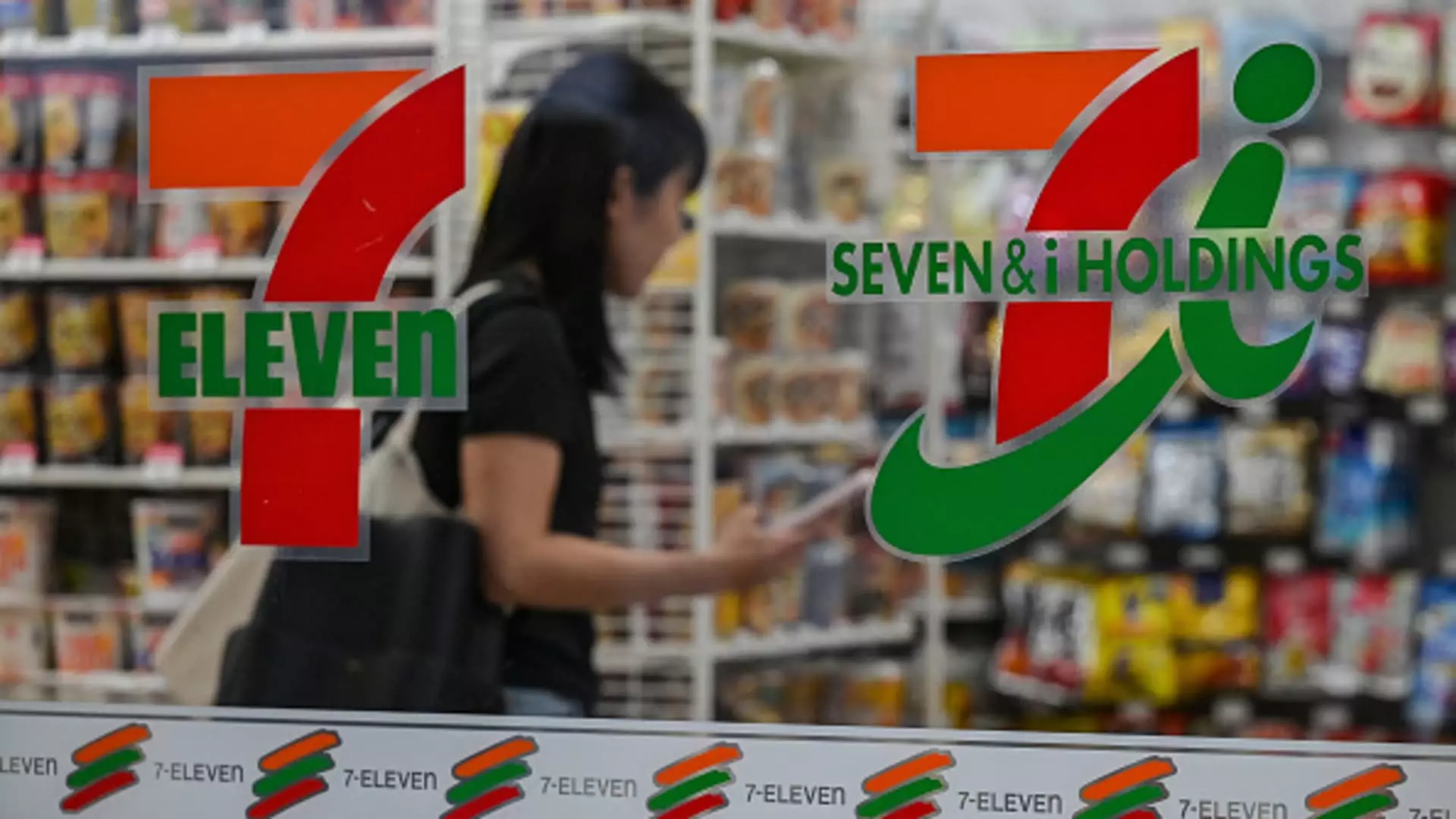In the fast-paced world of retail, adaptability is key, and few companies are as emblematic of this necessity as Japan’s Seven & i Holdings. Recently, the conglomerate announced significant adjustments to its earnings forecasts and embarked on a critical restructuring journey that underlines the complexities facing large retailers in a challenging economic environment. As the owner of well-known convenience store chains like 7-Eleven, Seven & i Holdings is not only intertwined with the Japanese retail landscape, but it also plays a vital role in international markets. This article delves into the company’s recent developments, outlining the implications of its strategic actions and the daunting challenges that lie ahead.
In a stark revelation for investors, Seven & i Holdings slashed its profit expectations for the fiscal year ending February 2025 by a staggering 44.4%. The revised forecast anticipates a net income of 163 billion yen (approximately $1.09 billion), a significant drop from the earlier projection of 293 billion yen. This alteration closely follows the company’s reporting of its first-half financial results, which showcased a net profit of 52.24 billion yen against revenues reaching 6.04 trillion yen. While revenues exceeded expectations, profitability remained underwhelming, falling short of guidance by nearly 60 billion yen.
This trend has been attributed to a noticeable decline in customer traffic at its international convenience stores. In a climate marked by economic uncertainty, the company noted that consumers are adopting a more cautious approach to spending, which has considerably impacted revenue streams. The retail landscape, encompassing both domestic and international dimensions, reflects the heightened challenges caused by fluctuating consumer behaviors and market volatility.
In an effort to realign its core business focus and enhance operational efficiency, Seven & i Holdings is undertaking a significant restructuring initiative. Central to this effort is the decision to spin off non-essential segments of its portfolio into independent subsidiaries. Specifically, the company has slated the Ito-Yokado Online Supermarket for separation, accompanied by a hefty charge of 45.88 billion yen. This move is indicative of broader pressures from investors for the retail giant to streamline operations and concentrate on its most lucrative business lines.
The restructuring initiative will consolidate various business units into an intermediate holding company that will house the supermarket food business and specialty stores. Amid impending scrutiny from investors, this strategic pivot emphasizes the company’s commitment to reinforcing its market position. It also hints at an ongoing struggle to balance stakeholder interests while optimizing resource allocation within an increasingly complex retail environment.
Meanwhile, the backdrop of these corporate maneuvers is marked by increasing pressure from Canadian convenience store giant Alimentation Couche-Tard (ACT), which has made a move to acquire Seven & i Holdings. The company initially rejected ACT’s takeover bid of $14.86 per share, arguing that it was “not in the best interest” of its stakeholders. Citing potential concerns over U.S. antitrust issues and the cultural impact of foreign ownership, Seven & i has sought to protect its interests by seeking reclassification as a “core business” in Japan.
The revised offer from ACT, reportedly increased to $18.19 per share, could signal intent to escalate beyond mere acquisition discussions. Analysts suggest that the dynamic is teetering on the edge of potentially transforming into a hostile takeover, particularly as shareholder dissatisfaction with Seven & i’s management grows. Observers highlight that while a hostile tender offer might pose challenges due to Japan’s opaque legal structures, it remains an avenue that ACT could pursue if negotiations fail to yield satisfactory outcomes.
The market response to ACT’s interest is tangible, with Seven & i’s shares increasing more than 33% since the acquisition interest became public knowledge in August. The rising stock price raises questions about how the board will navigate shareholder expectations, especially in light of ACT’s enhanced offer reflecting a 53% premium over pre-bid trading levels. Investors’ emotions are mixed, as some express frustration at the lack of effective communication and negotiation progress amid escalating offers.
Ultimately, Seven & i Holdings finds itself at a critical juncture, where the interplay between restructuring efforts, evolving market dynamics, and external acquisition pressures will shape its trajectory. As global retail landscapes continue to transform, the company faces the daunting task of ensuring its strategic initiatives align closely with long-term growth objectives while maintaining robust stakeholder relations. The ability to adapt and innovate in response to these challenges will likely dictate Seven & i Holdings’ future as a prominent player in the retail sector, both in Japan and globally.

